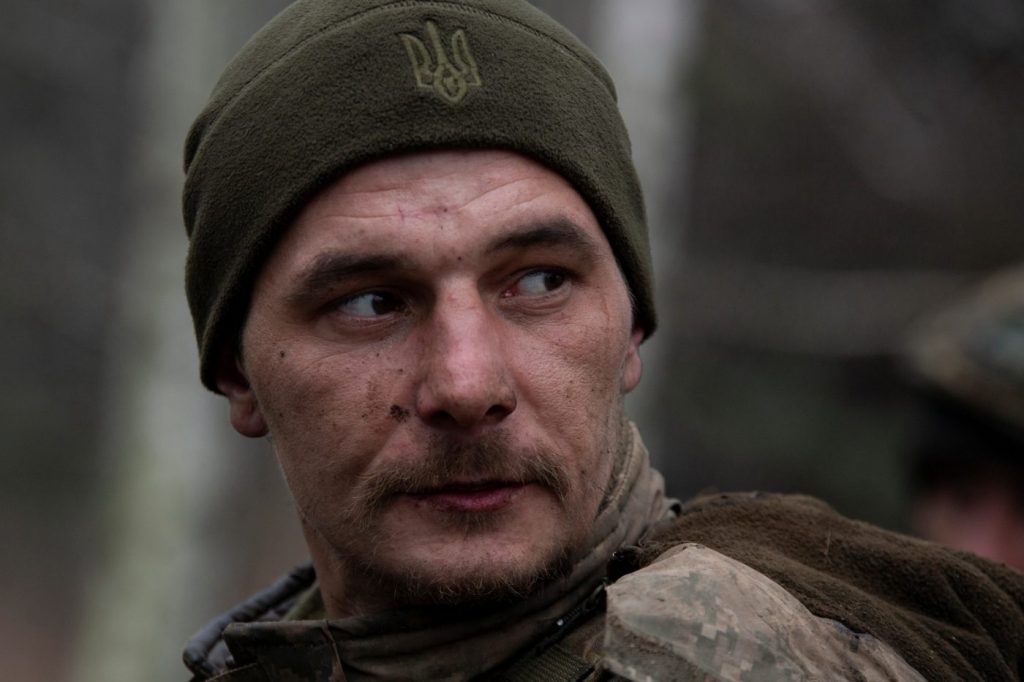The veterans’ affairs system in Ukraine needs significant improvement; the United States can serve as a blueprint for change.
In Ukraine, systemic failure to provide comprehensive veteran support became inescapably apparent after Russia’s all-out invasion of Ukraine.
This is a huge and unavoidable issue that must be solved. Access for veterans and bereaved family members to social and legal guarantees from the state, promotion of their reintegration after military service, and ensuring their well-being continues to be a pressing concern since the estimated number of veterans after the war is to be 4 million, according to an interview of the Ex-Minister for Veterans’ Affairs Yulia Laputina with the Ukrainian news agency, RBC.
Ukraine’s constitution mandates social support for military personnel and their families. Legislation and regulations offer more than 40 benefits to war veterans, including those outlined in the law On the Status of War Veterans and Guarantees of Their Social Protection.
However, access to these benefits is often complicated by bureaucracy. Separate legislative and subordinate legal acts concern the social protection of military service veterans, law enforcement and National Police veterans, and some other persons. This increases bureaucratic chaos, especially if a person qualifies as a member of more than one defined group.
In November 2018, the Ministry of Veterans Affairs was established to circumvent these issues. However, its efficiency is widely questioned. Further disarray was prompted by the resignation of Yulia Laputina, the Minister of Veterans Affairs, in February. The decision was reportedly made to improve the ministry’s efficiency.
In the lead-up to that decision, the public council at the Ministry of Veterans Affairs demanded her resignation due to the ministry’s alleged failure to effectively carry out its work and cooperate with veterans.
According to the survey — conducted in January by the Ministry of Veterans Affairs — veterans and servicemen and women believe specialized state institutions do not fulfill their purpose in full and that support for veterans’ professional and career development are ineffective, with 55% holding a negative view. Most respondents say state institutions must reduce bureaucracy.
The survey identified two other major concerns — healthcare and financial support.
Immediate healthcare was needed by most veterans surveyed (52%), while 63% mentioned their health struggles in returning to civilian life.
To meet this need, I suggest Ukraine look at the VA healthcare system of the US.
According to the US Department of Veterans Affairs, there are approximately 19 million veterans. The VA is organized around regional networks called Veteran Integrated Service Networks.
The Veterans Health Administration is America’s largest integrated healthcare system, with 1,321 healthcare facilities. Such a regionalized system would be ideal for Ukraine, ensuring accessible, tailored services, fostering efficiency, enabling coordination, and enhancing emergency preparedness, while addressing the diverse needs of veterans across different regions effectively.
Additionally, given the Ukrainian program of government digitalization (DIIA), the VA’s Computerized Patient Record System (CPRS) could be very useful at the local level by simplifying cooperation between local branches with minimized bureaucracy.
Healthcare is not the only concern — 56% of surveyed veterans indicated their need for state financial support. Currently, most only receive a payment of around $100 a month.
What about long-term assistance? Ukraine currently has more than 156,000 military pensioners. The military pension system, governed by Law No. 2262-XII, bases pensions on years of service. Payments for those with disabilities vary from $114 to $122. The US system offers more varied payments, based on income and family circumstances, like the number of dependents.
In addition, Law No. 2262-XII in Ukraine addresses the status of mobilized soldiers, making most of this group ineligible for a pension. Considering the number of mobilized individuals in the ongoing war, their long-term support in their post-service adaptation must be ensured.
The government does recognize there is an issue. The Ministry for Veterans Affairs wants an updated system of state support as set out in the draft law On the Basic Principles of State Veteran Policy.
Following America’s lead, Ukraine could also adopt regionalized healthcare networks, streamline services through digitalization, and revise compensation and pensions. It should ensure inclusivity for all veterans, including mobilized individuals, and advance legislative reforms for comprehensive support aligned with evolving needs.
At present, the Ukrainian support system for veterans is underfunded and incapable of addressing the impending post-war challenge. The US system provides an inspiration and a model. For example, the unemployment rate among veterans is 2.8%, whereas in Ukraine it is a staggering 30.95%.
Andriy Kucher, the head of the “Mighty 300” Union of Wounded Military of Ukraine, spoke in an interview in March about the impact of bureaucratic procedures on the adaptation and medical care of wounded soldiers. He emphasized the urgent need to digitalize the issuance processes for certificates and reports, instead of relying on manual filling by commanders.
This would ensure that wounded soldiers arrive at hospitals with their digital documentation ready, avoiding delays caused by waiting for commanders to assess issue the paperwork.
Ukraine’s servicemen and women need to return to productive life after their time in uniform. This is not an optional issue; it is critical and the government must ensure this.
A reformed system will help offer new possibilities to those who have served and bled. It will also stimulate the war-torn Ukrainian economy, which will need all the self-help it can get.
